Turn any article into a podcast. Upgrade now to start listening.
Premium Members can share articles with friends & family to bypass the paywall.
Happy Friday! We at TMD try to report the news as dispassionately as possible, but the latest from White House demands we speak out. First lady Melania Trump has released a series of American landmark-themed Christmas ornaments—in September?! Have you no shame, Mrs. Trump? We call for congressional hearings on premature holiday merchandising.
Quick Hits: Today’s Top Stories
- A grand jury indicted former FBI Director James Comey Thursday on charges of making a false statement and obstruction, stemming from his testimony to the Senate Judiciary Committee in 2020. The move came after U.S. Attorney for the Eastern District of Virginia Erik Siebert was pressured to resign by President Donald Trump last week, reportedly after he questioned bringing charges against both Comey and New York Attorney General Letitia James. Trump then appointed White House aide and former personal attorney Lindsey Halligan to the position. Halligan brought the charges after prosecutors presented her with a memo recommending that she not bring charges, as they believed they had failed to find enough evidence to secure a conviction. Trump celebrated in a Truth Social post, writing “JUSTICE IN AMERICA!” after making a public plea to Attorney General Pam Bondi last week to bring charges against Comey.
- Former French President Nicolas Sarkozy was sentenced to five years in jail by a court on Thursday after being convicted of participating in a criminal conspiracy to raise campaign funds from Libya. “Hatred truly knows no bounds,” said Sarkozy, who has maintained his innocence, after becoming the first French president in modern history sentenced to prison. The court acquitted Sarkozy of all other charges, which included corruption and receiving illegal campaign financing. However, the judge presiding over the case stated that Sarkozy had criminally allowed close aides to attempt to establish contacts in Libya and obtain funds, even though authorities could not prove the receipt of such funds.
- The FBI released new information Thursday about the shooting at a Dallas Immigration and Customs Enforcement facility the day before, including the identity of the suspect. Joshua Jahn, 29, took his own life after killing one detainee and seriously wounding two others in the shooting, and engaged in a “high degree of pre-attack planning,” according to FBI Director Kash Patel, who also wrote in a post on X that investigators had recovered a handwritten note reading “Hopefully this will give ICE agents real terror.”
- An independent report commissioned by Los Angeles County supervisors on the massive wildfires that destroyed multiple neighborhoods in January found that “outdated policies, inconsistent practices and communications vulnerabilities,” hindered the response to the fires. The report, conducted by the McChrystal Group and commissioned weeks after the fires, also cited staffing shortages in the sheriff’s department and the county’s office of emergency management. The county’s board of supervisors will review the report next Tuesday.
- Trump signed an executive order Thursday approving a deal that allows social media platform TikTok to continue operating in the United States while addressing national security concerns. The agreement requires TikTok to establish a U.S.-based entity that will oversee data protection and content moderation for American users, and though China-based parent company ByteDance will retain 20 percent ownership, it will be excluded from TikTok’s security oversight, and unspecified U.S. investors will own the remaining 80 percent. The largest of these will presumably be Oracle, which the White House says “will act as TikTok’s security provider and independently monitor and assure the safety of all operations in the U.S.” The deal requires regulatory approval from both the United States and China, but Trump has stated that Chinese President Xi Jinping has given his approval.
- Trump took to Truth Social on Thursday to announce a series of new tariffs, which include a 25 percent import tax on all heavy-duty trucks, a 30 percent tax on imported upholstered furniture, a 50 percent tax on kitchen and bathroom cabinets, and a 100 percent tariff on “any branded or patented Pharmaceutical Product,” unless the pharmaceutical company is building an American factory.
- A Taiwan court sentenced four former Democratic Progressive Party members to prison terms Thursday ranging from four to 10 years for spying for China and leaking classified diplomatic intelligence. Huang Chu-jung received the harshest 10-year sentence for transmitting secrets via encrypted software to Chinese agents, including officials’ travel itineraries and details of U.S.-Taiwan trade negotiations. The four defendants, who were expelled from President Lai Ching-te’s ruling party in May, included a former aide who worked in the president’s office and another who served under then-Foreign Minister Joseph Wu. Taiwan’s National Security Bureau said 64 people were prosecuted for Chinese espionage last year, with sentences as long as 20 years.
- Amazon has agreed to pay $2.5 billion to settle a lawsuit brought by the Federal Trade Commission, which alleged that the company had misled customers into signing up for its Amazon Prime subscription and created a confusing process to cancel. The settlement includes a $1 billion civil penalty and the creation of a $1.5 billion fund to compensate customers, but Amazon will not be required to admit whether it violated consumer protection laws. The civil penalty is the largest in FTC history.
- Bloomberg reported Thursday that European diplomats have warned their Russian counterparts that their countries are prepared to shoot down Russian jets that encroach on their airspace, following a meeting in Moscow to discuss three Russian jets flying into Estonian airspace. Russian officials have denied the incursion took place and insisted they’re not trying to provoke NATO, but diplomats from Germany and France reportedly concluded that the jets had been ordered in Estonia deliberately. Russian drones have also been reported over Poland and Romania this month, and Danish officials have said that Russian involvement could not be ruled out in a drone flyover that temporarily shut down Copenhagen’s airport on Monday.
- Turkish President Recep Tayyip Erdoğan visited the White House on Thursday for a meeting with Trump. The U.S. president urged Erdoğan to stop buying Russian oil “while Russia continues this rampage against Ukraine,” and indicated that he would be open to allowing Turkey to buy F-35 fighter jets, which Turkey was barred from doing after it purchased Russian missile systems in 2019.
- The White House Office of Management and Budget has drafted a memo outlining plans to go beyond temporary furloughs in the event of a government shutdown on October 1 and instead conduct large-scale firings of federal employees. The memo directs all agencies to prepare “reduction-in-force” plans for all government programs not statutorily required to continue in the event of a government shutdown. Democratic leaders, who yesterday rejected a handshake deal between Democrats and Republicans to avert a shutdown, dismissed the plans as a bluff, arguing that the White House was seeking to fire large numbers of federal employees regardless.
- U.S. Secretary of Defense Pete Hegseth abruptly ordered hundreds of top military officers, including generals and admirals, to a meeting in Quantico, Virginia, next week. “The Secretary of War will be addressing his senior military leaders early next week,” said Pentagon spokesman Sean Parnell, who gave no further details. Such a large meeting, called on short notice, is almost unprecedented.
- Palestinian Authority President Mahmoud Abbas addressed the United Nations General Assembly on Thursday, rejecting any role for Hamas in the future governance of the Gaza Strip and calling for an end to Israel’s “war of genocide, destruction, starvation, and displacement.” Abbas spoke over video after his visa was denied by the U.S., claiming that his government was “ready” to assume control of a Palestinian state created out of territories in the West Bank and Gaza. In recent days, several countries, including the United Kingdom, France, Canada, and Australia, have formally recognized Palestinian statehood, which the U.S. and Israel reject. Abbas also endorsed a French peace proposal, which calls for Hamas to release all 48 remaining hostages and for Israel to stop all military operations in Gaza, with a transitional government for Gaza led by the Palestinian Authority.
Not So United
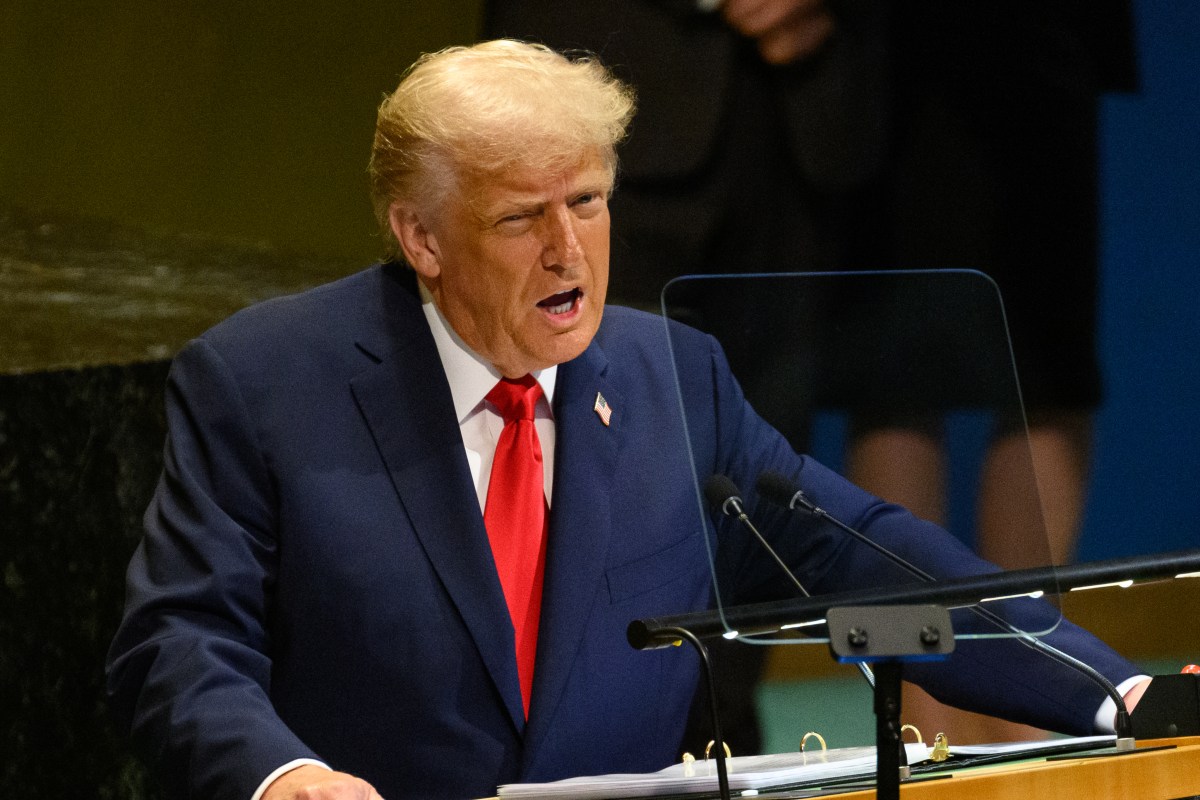
President Donald Trump can be a blunt guest. When he appeared before the United Nations on Tuesday—in his first U.N. General Assembly address since 2019—his speech didn’t focus on working together to make the world a better place. Instead, he used the platform to lambaste his hosts for their failures and shortcomings.
He insisted to the assembled world leaders that he has made the world a safer place, while the U.N. and foreign nations sat on the sidelines. “In a period of just seven months, I have ended seven unendable wars,” Trump said. “No president or prime minister, and for that matter, no other country has ever done anything close to that. And I did it in just seven months. … It’s too bad that I had to do these things instead of the United Nations doing them,” he continued, adding that “later I realized that the United Nations wasn’t there for us.”
He specifically criticized the countries formally recognizing a Palestinian state. On September 21, the respective leaders of Australia, Canada, Portugal, and the United Kingdom announced their countries would do so. One day later, six other countries, including France, followed suit.
He also called out European countries for not doing more to stop Russia’s invasion of Ukraine. “Inexcusably, even NATO countries have not cut off much Russian energy and Russian energy products, which, as you know, I found out about two weeks ago, and I wasn’t happy,” he said. “Think of it. They’re funding the war against themselves. Who the hell ever heard of that one?”
(Trump also had to deal with both a malfunctioning escalator and teleprompter during his visit, which he characterized as “triple sabotage at the U.N.,” though U.N. officials say it was all an accident.)
“The U.N. has such tremendous potential. I’ve always said it,” Trump said. “But it’s not even coming close to living up to that potential for the most part, at least for now.”
Is he right?
The United Nations was established in 1945, from the ashes of World War II, with an ambitious mandate to prevent future global conflicts. The U.N. Charter outlined its primary goal “to save succeeding generations from the scourge of war,” but what began as a collective security arrangement among 51 founding nations gradually evolved into a sprawling institution of 193 member states with tentacles reaching into virtually every aspect of global governance—from peacekeeping and humanitarian aid to climate change and sustainable development.
This doesn’t mean it doesn’t still help towards its original mission. “The U.N. was involved in every single one of those conflicts, either behind the scenes or in active negotiations, and certainly on the humanitarian front,” Thomas Weiss, a CUNY political science professor told TMD.
However, as Brett Schaefer—senior fellow at the American Enterprise Institute, who focuses on multilateral treaties and the United Nations—explained, the U.N. has changed over the years because it doesn’t have a superb track record at what was supposed to be its core mission. “We’ve had over 300 wars since 1945, so its efforts to save the future generations from the scourge of War certainly fall short in that regard,” he said.
Instead, it’s shifted to more humanitarian functions, where the body has a stronger record of expertise and efficacy. “It has this kind of technocratic function where it tries to provide certain services internationally,” Indiana University Bloomington professor David Bosco told TMD, which comes in addition to “this function of being a global stage and kind of a global forum.” Bosco pointed to “the direct provision of aid in certain circumstances” as one process the U.N. has nailed down to a degree of efficiency, attributed to, in large part, “technical expertise.” That expertise allows the U.N. to respond swiftly to a variety of crises. “How do we help manage a refugee crisis? How do we get humanitarian aid to a certain affected region? How do we set up a peacekeeping force to deal with some kind of post-conflict situation?” Bosco added. “Those are the things where the organization has a lot of experience and some expertise.”
Yet even here, the organization faces criticisms. “In terms of economic development, we’ve seen quite a bit of economic development, but I would argue that the United Nations hasn’t been central to those efforts,” Schaefer said. “I would say that markets and capitalism have been the driving force behind most of the elimination of poverty around the world.”
In Bosco’s words, Trump’s language toward the U.N. may be “unprecedented,” but “you certainly had U.S. presidents challenging the U.N. and suggesting that the organization might not be effective, or might not even exist in the future.” He pointed to former President George W. Bush’s September 2002 U.N. General Assembly address, one year after the 9/11 terror attacks. While discussing the need for military action in Iraq, Bush asked, “Will the United Nations serve the purpose of its founding, or will it be irrelevant?”
In his statement to the United Nations in 2022 following Russia’s invasion of his country, Ukrainian President Volodymyr Zelensky said that “the U.N. Security Council exists and security in the world doesn’t,” in part because Russia is a permanent member, with veto powers, and thus “was unable to carry out the functions for which it was created.” In his address this week, with the war stretching into its fourth year, Zelensky underscored this point, saying that international bodies were too weak, and that “no one but ourselves can guarantee security.” He added: “What can Sudan, Somalia, Palestine, or any other peoples living in war really expect from the UN? Decades, only statements.”
Czech Republic President Petr Pavel made a similar point about Ukraine in his address this week, saying that, though “the U.N. has changed countless lives and laid the groundwork for a better and more humane world,” the security council was failing in its duties. “At a time when Russia, one of the permanent members of the U.N. Security Council, was waging a merciless war against Ukraine, the Security Council was not fulfilling its mission in relation to this aggression.”
Similarly, Israel has long complained that institutional issues led to it receiving far more criticism than countries with far more severe human rights records. In 2024 alone, UN Watch tallied that the U.N. General Assembly had passed 17 resolutions targeting Israel compared to just six against all other countries combined, and Israel remains the only country subject to a dedicated agenda item at the U.N. Human Rights Council. In 2011, then-U.S. Secretary of State Hillary Clinton denounced the body’s “structural bias against Israel”, and in 2016, former U.N. Secretary-General Ban Ki-moon acknowledged “a disproportionate volume of resolutions, reports and conferences criticizing Israel.”
Perhaps the most notable part of Trump’s address this week, though, was what he didn’t say. “Trump didn’t say a thing about what should happen to the shape of” the U.N., Weiss said. “I’m rather surprised that there was not a concrete solution to any of the laments that Trump put on the table.” There was no argument over what reforms should look like, nor were there demands to change, and most experts think a complete U.S. withdrawal from the U.N. is very unlikely—at least in the near future.
“I think that sort of existential fear had eased a little bit,” Richard Gowan, the International Crisis Group’s U.N. and multilateral diplomacy director, told TMD. “Even this administration sees the advantage of having a veto in the U.N. Security Council.”
The U.N. Security Council oversees the group’s peacekeeping operations, and, as such, is tasked with “the maintenance of international peace and security,” according to the U.N. website. The council is composed of 15 voting nations, with five permanent members —namely, the U.S., U.K., France, China, and Russia —plus 10 other countries that serve two-year terms.
However, only the five permanent members have a veto over Security Council decisions, which often results in gridlock.
“If there’s a division between the permanent five, then you’re just going to have essentially a stalemate at the Security Council,” Bosco told TMD. “Unfortunately, that’s true on several important conflicts.”
SCOTUSblog Summit
“I’ve had to just learn to tune it out,” Supreme Court Justice Amy Coney Barrett said Thursday about public criticism. “It’s the job of a judge to ignore that and not be influenced by public opinion.”
Her remarks came during the day-long SCOTUSblog On the Merits Summit hosted by The Dispatch and the Stavros Niarchos Foundation Agora Institute at Johns Hopkins University, brought “together legal scholars, corporate counsels, judges, regulators, and journalists” at the Johns Hopkins Bloomberg Center in Washington, D.C.
Along with hosts Sarah Isgur of The Dispatch and Zachary Shemtob of SCOTUSblog and moderators that included Amy Howe of SCOTUSblog, Jodi Kantor of the New York Times, and David Lat of Original Jurisdiction, several panels discussed the coming Supreme Court term, the real-world effects of Supreme Court decisions, and the “judiciary’s broader role in public life.”
Speaking with Judge Patrick Bumatay of the 9th Circuit U.S. Court of Appeals, Barrett’s keynote conversation addressed the intense public scrutiny facing the Supreme Court. She acknowledged having to tune out critics who label her both too conservative and too liberal depending on her votes, noting the protesters outside her home and the constant criticism that comes with the position.
She recalled being caught off guard by Sen. Dianne Feinstein’s 2017 comment that “the dogma lives loudly within you” during her confirmation hearing for he 7th Circuit U.S. Court of Appeals. Barrett was “surprised by it,” she said, and “a little uncomfortable to have my faith be in the spotlight.” When asked about highlights and lowlights of her Supreme Court confirmation process, Barrett was blunt: “It was pretty much all a lowlight.” Barrett also revealed that she psyched herself up during her confirmation battle by listening to the Rodney Atkins song “If You’re Going Through Hell,” and joked that she's “in much worse shape” now that she can no longer attend her old CrossFit gym.To read more from Barrett’s conversation, read Kelsey Dallas’ report in SCOTUSblog.
The Civil War tested a fledgling republic—again.
Toeing the Company Line
‘Good Luck To All!’
Donald Trump’s slow-motion surrender in Ukraine
Why Not?
The postliberal logic of frivolously charging James Comey.
Why Trump’s Latest Surprise Could Benefit Ukraine for Once
The president says he believes the war-torn nation can defeat Russia. Ukraine supporters are hopeful.
Can Pragmatism Save the Democratic Party?
A collection of center-left groups seeks to repeat the success of the Democratic Leadership Council in the late 1980s.
Thin Ice on the Eastern Front | Roundtable
Plus: More on Jonah’s rollerblading years.
Worth Your Time
During his 2020 presidential run, Andrew Yang appeared on commentator Ben Shapiro’s podcast and cited radiologists as an example of a high-paying career that artificial intelligence could render obsolete (a common concern at the time). Fast forward to today, and despite the widespread deployment of these promised AI tools, radiologists remain in high demand. As Deena Mousa argues in a Works in Progress piece, “AI isn’t replacing radiologists.” Instead, human radiologists find that “demand for human labor is higher than ever”—an instructive example of how AI may affect the labor market in less predictable ways. Mousa offers three explanations for radiologists’ resilience: “First, while models beat humans on benchmarks, the standardized tests designed to measure AI performance, they struggle to replicate this performance in hospital conditions. Most tools can only diagnose abnormalities that are common in training data, and models often don’t work as well outside of their test conditions. Second, attempts to give models more tasks have run into legal hurdles: regulators and medical insurers so far are reluctant to approve or cover fully autonomous radiology models. Third, even when they do diagnose accurately, models replace only a small share of a radiologist’s job. Human radiologists spend a minority of their time on diagnostics and the majority on other activities, like talking to patients and fellow clinicians.”
Presented Without Comment
The Hill: Vance: FCC Chief’s Kimmel Threat Was ‘Joke’
Also Presented Without Comment
Associated Press: Hegseth Says Wounded Knee Soldiers Will Keep Their Medals of Honor
Also Also Presented Without Comment
CBC: Supreme Court of Canada Grants Stay of Execution for B.C. Ostriches
Let Us Know
Have any thoughts or questions about today’s newsletter? Drop us a note in the comments!
Correction, September 26, 2025: This newsletter has been updated to reflect that David Bosco is a professor at Indiana University, not the University of Indiana.


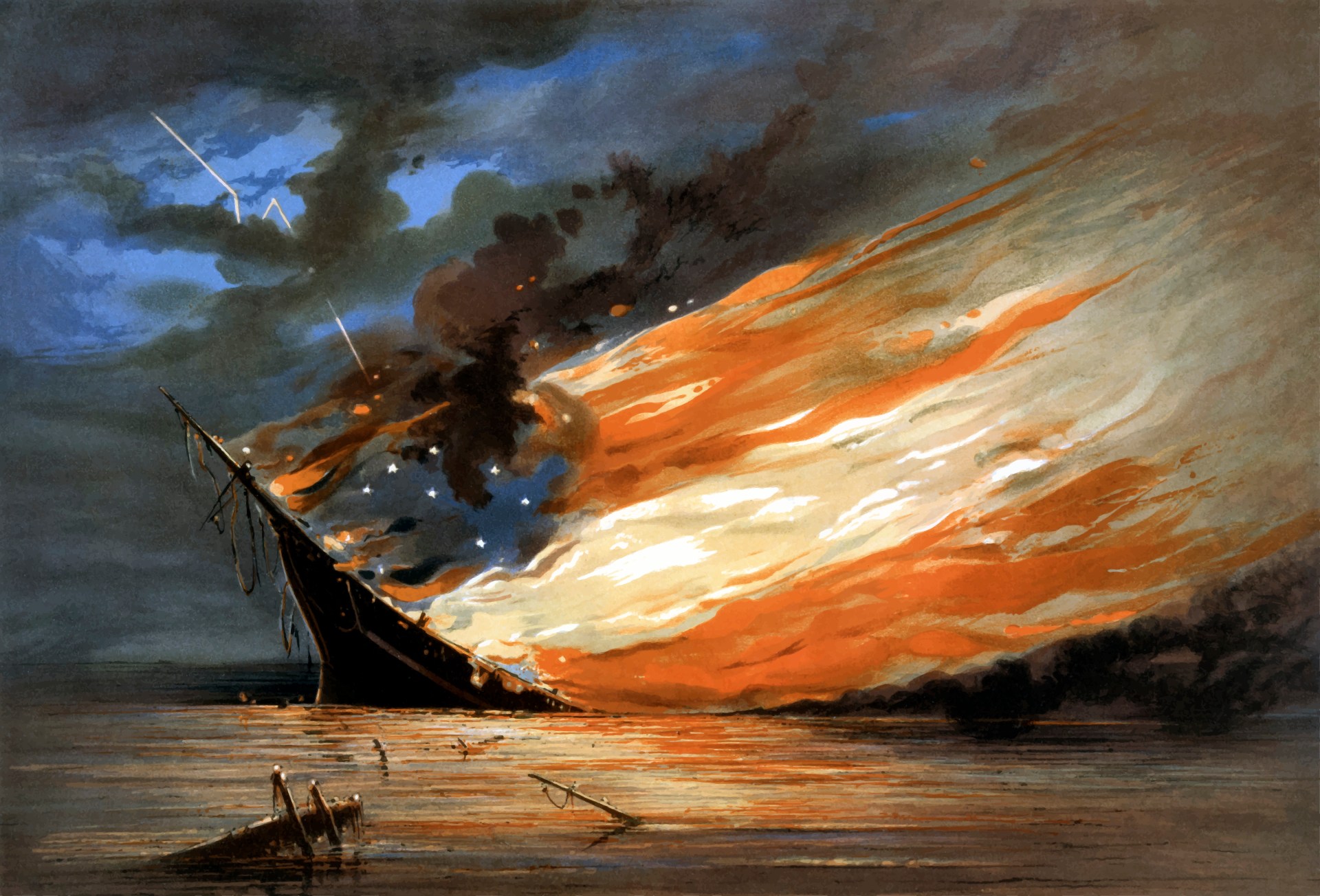
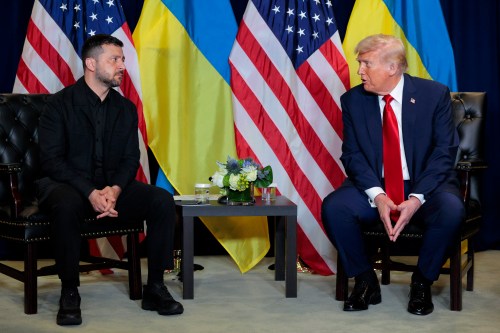
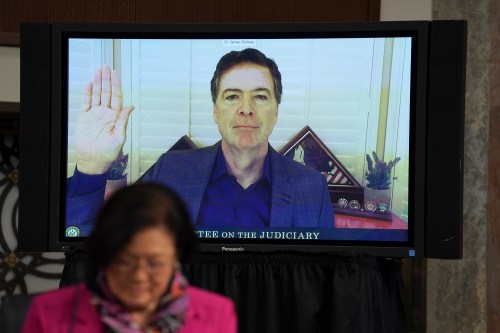
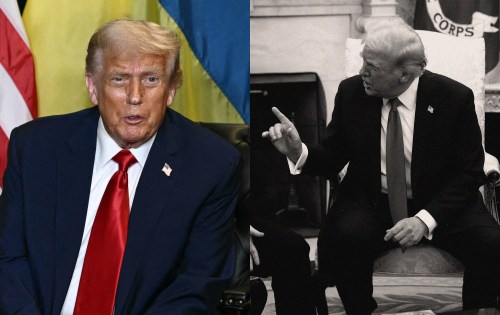
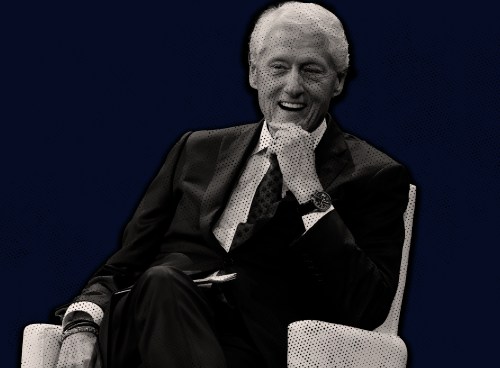
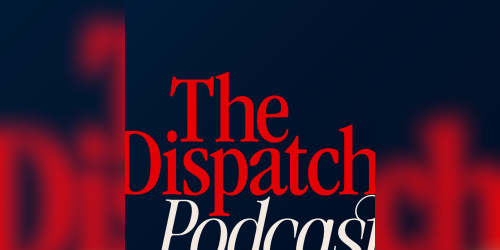




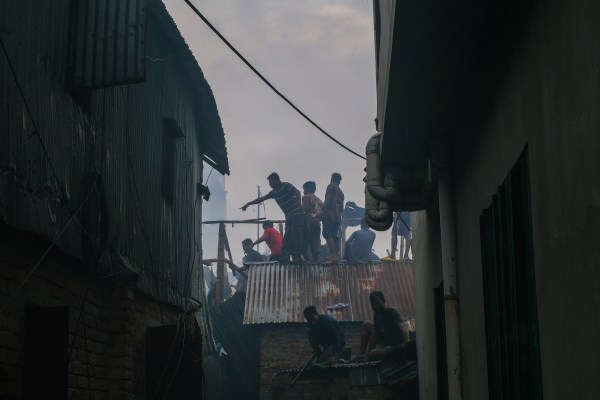

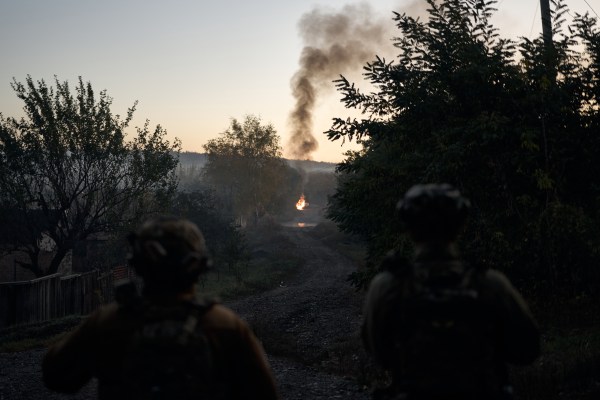
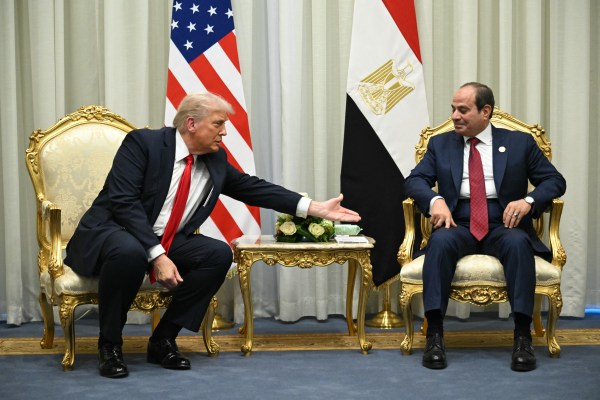
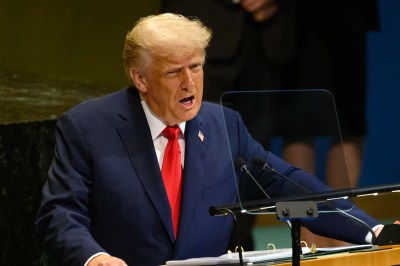
Please note that we at The Dispatch hold ourselves, our work, and our commenters to a higher standard than other places on the internet. We welcome comments that foster genuine debate or discussion—including comments critical of us or our work—but responses that include ad hominem attacks on fellow Dispatch members or are intended to stoke fear and anger may be moderated.
With your membership, you only have the ability to comment on The Morning Dispatch articles. Consider upgrading to join the conversation everywhere.